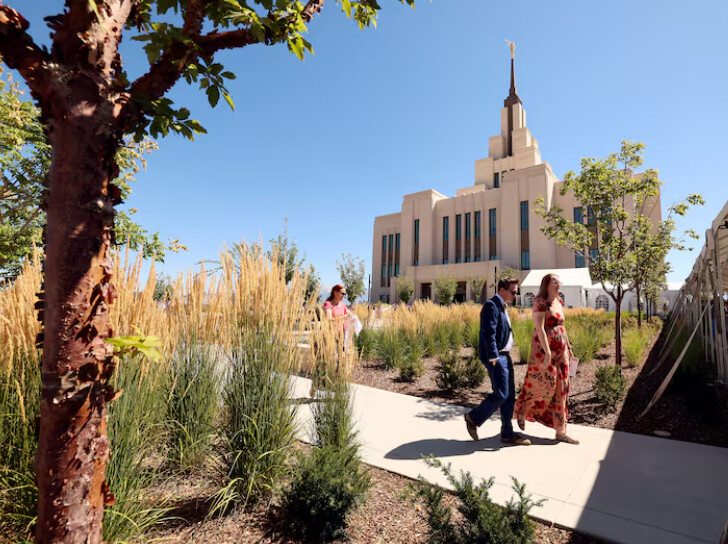How we talk about the ordinances of the temple frames how we understand them. On a recent episode of the Magnify podcast, author Melinda Brown suggested one way we can speak of the endowment ordinance more accurately.
Why Say “Receive” Instead of “Take”?
“When we frame the language … as receiving our own endowment, I think that’s really a lovely way to put it as opposed to the more colloquial, ‘I’m going to take out my endowments,’” Melinda says. “It’s really a more gracious way of talking about it when we say ‘receiving your own endowment’ because it shows our willingness to take it in and let it become part of us. We see it as a sacred responsibility to cherish and embrace … this gift.”
Melinda points out that when we are confirmed after baptism, we are blessed to “receive” the gift of the Holy Ghost. We are taught that the gift becomes significant and powerful as we learn to receive it. In other words, receiving the gift of the Holy Ghost God isn’t something that happens in an instant.
In a university devotional, Brigham Young University professor Anthony Sweat spoke about how this principle applies to the endowment as well:
“[We] don’t get fully endowed with power in a few hours. If we understand that endowment is a spiritual capacity, then we need to develop that capacity over time through faithfully seeking to understand and diligently living the concepts and covenants presented in the temple endowment ceremony.”
Why Do We Say ‘Keep’ Our Covenants?
Melinda also discussed two other common phrases used by Latter-day Saints: “keep your covenants” and “keep the commandments.” Where did we get the language of “keep”? The answer may surprise—and inspire—you.
“Anciently and biblically, if we go back to the Hebrew, the idea of that word—the Hebrew word is shemar—is complex,” Melinda says. “I think the reason [scripture] translators historically have chosen keep for the English translation is that it’s very closely related to the idea of ‘keeping watch over,’ say, a flock of sheep. In fact, very anciently, the whole idea of a sheepfold is wrapped around that word shemar. It’s really about you shepherding this thing that is valuable and precious to you.”
Some scholars suggest that the word keep in scripture means cherish or embrace. So rather than seeing covenants as restrictions, check boxes, or standards to beat ourselves up against if we fall short, they become something to cherish. Covenants are a gift God offers us; a gift that if embraced will help us reach our divine potential.
Why Does Seeing Covenants as a Gift Matter?
Seeing covenants as a gift to cherish opens the door for a more personal relationship with God.
“Think of your special way of doing this, [of cherishing],” Melinda says. “What is your … way of honoring? It can be more personal and more relational. … More than anything, temple-style learning, temple worship, is meant to be expansive. … [it’s] opening your mind to seeing so many new layers of things that never stop. It’s infinite growth possibilities when we’re invited to think expansively.”
You can listen to the full episode with Melinda (where you’ll hear thoughts on seeing the temple garment as a privilege) on the Magnify podcast. Available on all major streaming platforms.
For more articles on the temple and temple endowment see the links below.
▶ A realization about the word ‘endowment’ to bring more peace to your temple worship
▶ The simple thing my mom did that showed me the power of temple garments
▶ Who writes temple dedicatory prayers? Where can I read my temple’s dedicatory prayer?


